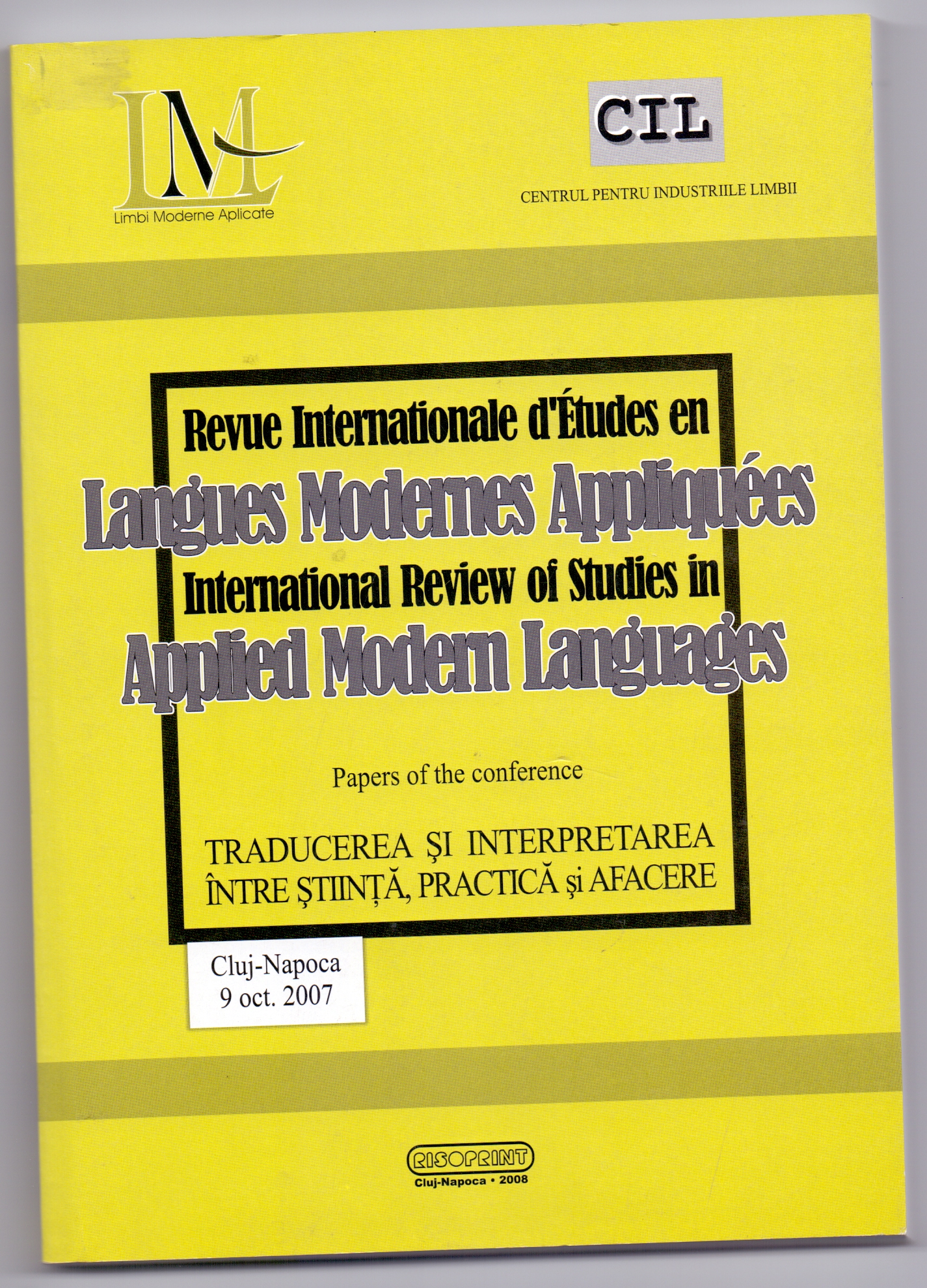La traduction et l’interprétation de conférence : quelques réflexions pragmatiques sur la formation et la carrière
Translation and Conference Interpreting: Several Pragmatic Considerations on Training and Career Development
Author(s): Mihaela ToaderSubject(s): Higher Education , Translation Studies
Published by: Risoprint
Keywords: translation; conference interpreting; language-related professions; linguistic competence; cultural and intercultural competences;
Summary/Abstract: Training and Working in the Fields of Translation and Conference Interpreting. Pragmatic Considerations In the recent context of increasing internationalisation of all professional fields, the relations and interactions between persons speaking different languages and belonging to different cultures have changed considerably. As a result of these new and dynamic relations and interactions, specific training programmes as well as specific social and professional qualifications have appeared. One of the new academic training fields is the linguistic and cultural mediation through translation, conference interpreting and multilingual communication. Its curriculum is adapted to the needs of the market and aims at improving students’ knowledge of the history, civilisation, culture, and society of the respective countries, while at the same time familiarizing students with theories and concepts concerning communication and interculturality. All this is completed by an improvement of the students’ knowledge of the foreign languages they study and by an initiation to various fields of application of this knowledge. The fact that their curriculum comprises disciplines related to general linguistics, applied linguistics and various application fields is a great asset for Applied Modern Languages students. Moreover, the multilingual and multidisciplinary approach allows them to study foreign languages from the point of view of their interactions. A linguistic and cultural encounter ismore than just a clash between linguistic and cultural elements: it is the very proof that differences can be rewarding and profitable for all the partners involved in the cultural dialogue. Although translation and conference interpreting have so much in common, these two professions require different and very specific training programmes. The Applied Modern Languages departments respond to the growing needs of the market. The European Union and globalization provide jobs, but also foster competition. Here below we discuss the theoretical foundation of the current pragmatic developments in what concerns the linguistic and cultural mediation professions, the reasons for choosing these professions and their specificities, the prospects of the graduates, the responsibilities of universities, the importance of experience and background knowledge for translators and conference interpreters, and quality assurance.
Journal: Revue Internationale d'Études en Langues Modernes Appliquées
- Issue Year: 2008
- Issue No: 01
- Page Range: 47-59
- Page Count: 13
- Language: French

